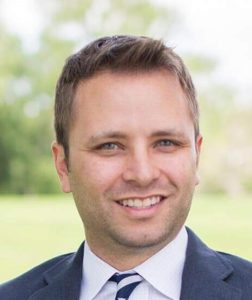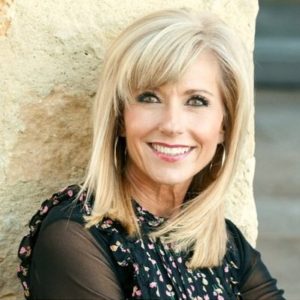A Southern Baptist Convention seminary professor who teaches that males and females are created for distinct and complementary roles in the home and church criticized the denomination’s president and a popular Bible teacher for suggesting it can be OK for a woman to preach.

Owen Strachan
Owen Strachan, associate professor of Christian theology at Midwestern Baptist Theological Seminary in Kansas City, Missouri, posted a blog May 7 saying the Bible places the responsibility to lead, guide and teach the assembled congregation on “only godly men.”
Strachan, formerly president of The Council on Biblical Manhood and Womanhood, singled out two popular Southern Baptist voices – Beth Moore and J.D. Greear – whom he said are straying from the “complementarian” view of divine order that has held sway in the nation’s second-largest faith group for a quarter century.
“Both Moore and Greear are gifted individuals, respected within the SBC and beyond it,” Strachan said. “In recent days, I was surprised to see these two figures endorse, in the context of the church’s gathered worship service, a woman teaching and preaching to the corporate body.”
“This was new to me,” Strachan said. “Southern Baptists have never embraced such a view.”
Moore, who founded Living Proof Ministries in 1994 to help women order their lives around conservative evangelical principles, joked on Twitter that she fantasized about “teaching a men’s Sunday school class at a church full of Calvinists just to get everybody going.” Later in the thread Moore said she will be preaching on Mother’s Day.
Greear, current president of the Southern Baptist Convention eligible for a second term when the convention gathers in June, wrote an article in March saying elders at The Summit Church in Durham, North Carolina, are developing a position paper that allows women to address both males and females as long as it is not implied to be authoritative teaching like that of an elder.
“While we have had women explain and exhort from the ‘pulpit’ during the ‘sermon’ time, we have always done it in a way that communicates that she does not bear the official teaching responsibility of the church,” Greear said. “Because of the importance of the sermon in our worship services, we believe having a woman occupy the prime teaching slot (in the way that I do each weekend) would have her teaching in an elder-like way, even if she isn’t technically an elder.”
Strachan said the Bible frees women “to evangelize, witness to the glory of God in the secular workplace, and serve on the mission field.”
“Yet we cannot miss this: the scriptural focus on feminine domesticity means that the church joyfully promotes ‘homemaking’ as a glorious call of God,” the professor continued. “Whatever a secular culture says, the Lord loves motherhood, wifely submission to a husband ‘in everything’ (Ephesians 5:24), family-building, and the training of children to know Christ.”
“Whether a woman is called to marriage or singleness, women should not preach or offer public teaching in the gathered worship service in local churches,” Strachan said. “The call to local church leadership is not dependent upon gifting or talent; it is based on the creation order of almighty God.”
Strachan said on Twitter that permitting women to preach on Sunday is “functional egalitarianism.”

Beth Moore
“Owen, I am going to say this with as much respect and as much self-restraint as I can possibly muster,” Moore replied to Strachan’s tweet. “I would be terrified to be a woman you’d approve of. And I would have wasted 40 years of my life encouraging women to come to know and love Jesus through the study of Scripture.”
Egalitarianism is the name given to the counter view to complementarianism, the latter term coined in the 1980s and outlined in a document titled the Danvers Statement. Egalitarians believe the Bible calls for mutual submission in Christian relationships without a hierarchy, appealing to verses like, “There is neither Jew nor Greek, slave nor free, male nor female, for you are all one in Christ Jesus.”
Disagreement over gender roles was one reason that in the 1990s thousands of moderates left the SBC to form the Cooperative Baptist Fellowship.
In 1984 the SBC passed a resolution opposing women’s ordination, in part to “preserve a submission God requires because the man was first in creation and the woman was first in the Edenic fall.”
In 1998 the convention amended the Baptist Faith and Message of 1963, assigning the husband “the God-given responsibility to provide for, to protect, and to lead his family” and the wife “to submit herself graciously to the servant leadership of her husband even as the church willingly submits to the headship of Christ.”
In a comprehensive revision of the Baptist Faith and Message adopted in 2000, Southern Baptists decreed that, “While both men and women are gifted for service in the church, the office of pastor is limited to men as qualified by Scripture.”
